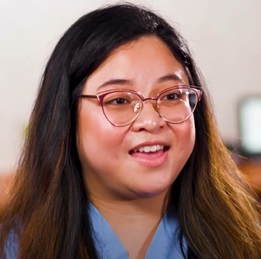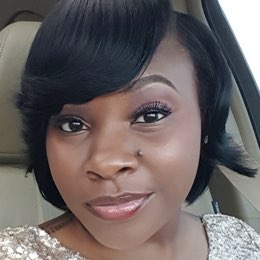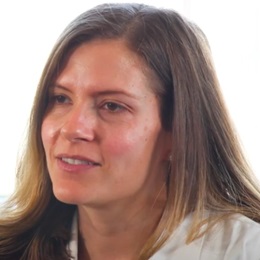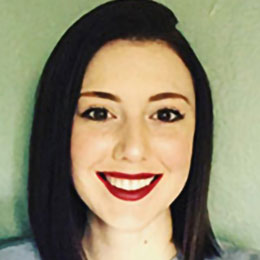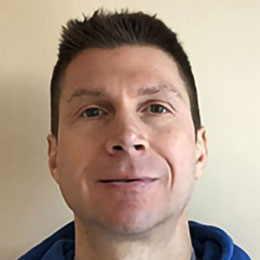Medical Assisting

Request Information
Associate of Science in Medical Assisting

South University’s Medical Assistant program* is designed to provide comprehensive medical assisting training and support to pursue becoming a medical assistant. At our Columbia campus, we focus on instructing our medical assisting students with the practical skills required for both healthcare careers and future certification exams. Graduates from the MA program will be able to demonstrate their proficiency in a range of administrative and clinical medical assisting procedures.
*Programs, including all Clinical/Medical programs, have a required in-person , practicum, or externship. We cannot guarantee flexibility in these components of the program.
Launch Your Career in Medical Assisting
Why Choose Our Program?
- Learning That Fits Your Life: Balance your personal life and education with online class options.
- Hands-On, Competency-Based Training: Master essential clinical skills in a practical, supportive learning environment.
- Final Quarter Practicum: South University will arrange your 160-hour practicum at a local medical practice as part of the program.
- Licensure and Certification Support: Receive guidance and preparation to help you sit for the CMA, RMA, CCMA, NCMA, and AMCA certification exams.
Your Path to Success
How You’ll Learn
- All general education and foundational courses are taught online.
- All technical phase courses are taught on-campus, with a practicum at a local medical practice.
Licensure & Certification
Our Columbia Medical Assisting graduates may sit for the following exams:
- Certified Medical Assistant (CMA) by American Associations of Medical Assistants (AAMA)
- Registered Medical Assistant (RMA) by American Medical Technologists (AMT)
- Clinical Certified Medical Assistant (CCMA) exam by National Healthcareer Association (NHA)
- Nationally Certified Medical Assistant (NCMA) through National Center for Competency Testing (NCCT)
- Clinical Medical Assistant Certification (CMAC) from the American Medical Certification Association (AMCA)
Commission on Accreditation of Allied Health Education Programs
The South University Medical Assisting Programs on the Columbia and Savannah campuses are accredited by the Commission on Accreditation of Allied Health Education Programs (www.caahep.org) upon the recommendation of Medical Assisting Education Review Board (MAERB). Commission on Accreditation of Allied Health Education Programs (CAAHEP); 9355 - 113th Street North, #7709, Seminole, FL 33775, Email: mail@caahep.org.
The Associate of Science in Medical Assisting program offered at Montgomery and through South University’s online programs is not accredited by the Commission on Accreditation of Allied Health Education Programs (www.caahep.org).
Admission Requirements
Procedure for Admission to the Associate of Science in Medical Assisting Program
In addition to general admission to the University, students should be able to meet the following technical standards for the Medical Assisting Program.
- Background Check:
Students must complete a background check at their own expense using the agency identified by the MA Program Director. No other background checks will be accepted. The background check must be completed at least three weeks prior to the intended start date of the first MA Practicum clinical placement. Students with a positive background check will not be allowed to start AHS2098 Medical Assisting Practicum and will be referred to the MA Progression Committee. The MA program follows the College of Health Professions Background Check Policy and Substance Abuse and Screening Policy located in the South University Catalog (www.southuniversity.edu/admissions/academic-catalog). Applicants are not eligible for admittance into any portion of the MA program if they have a felony conviction, plea, or adjudication withheld, or any disqualifying misdemeanor, for which a pardon or exemption for disqualification has not been received, including but not limited to rape or sexual abuse or molestation, and abuse, endangerment, or neglect of a child, disabled person, or elderly person. - Drug Screen:
Students must complete drug screen at their own expense using the agency identified by the MA Program Director. No other drug screens will be accepted. The screen must be completed at least three weeks prior to the intended start date of the first MA Practicum clinical placement. Students with a positive drug screen will not be allowed to start the MA Practicum and will be referred to the MA Progression Committee. The MA program follows the College of Health Professions Substance Abuse and Screening Policy located in the South University Catalog (http://www.southuniversity.edu/admissions/academic-catalog). - Technical Standards:
Students must meet the technical standards, which describe the physical abilities and behavioral characteristics required of students for full participation and successful completion of the MA program, as well as to function as a fully qualified medical assistant after graduation. Prospective MA students should review these standards and determine if they have any limitations that may interfere with their ability to satisfy any of these requirements.
The technical standards are:
- Sensory
Medical Assisting students must be able to read charts, graphs, instrument scales and medication orders, prepare and maintain medical records, and use their senses of hearing and touch to recognize emergencies and to assess the patient's physical condition. - Communication
The Medical Assisting student must be able to read and write effectively in order to transmit information to all members of the healthcare team. The student must also be able to assess nonverbal communication and respond appropriately.
Additional requirements include the ability to interview and record patient histories, provide patient care instructions, use correct telephone technique, collect, prioritize and convey information. - Fine Motor Skills
The Medical Assisting student must manifest all the fine motor skills necessary to safely and accurately use medical instruments and perform diagnostic and clinical procedures (e.g. obtaining the patient's blood pressure, heart rate and temperature, drawing blood and administering non-intravenous injections). The student must be able to perform basic secretarial skills, including using a keyboard and the operation of common office equipment. - Gross Motor Skills
The Medical Assisting student must be able to support patients when ambulating, assist patients in and out of a wheelchair, and on and off an examination table. Students must be able to reach equipment and supplies and respond appropriately to emergency situations in a timely manner. - Psychological Stability
The Medical Assisting student must demonstrate the ability to handle difficult interpersonal situations in a calm and tactful manner. The student must also be able to maintain a composed, competent, and confident demeanor during emergency situations.
MA Clinical Practicum Policies
- Proof of Immunization:
MA students are required to provide evidence of the initiation or completion of the Hepatitis B immunization series and current flu shot. The student must upload all original lab results and evidence of immunization through the background screening and compliance tracking agency identified by the MA Program at least three weeks prior to the intended start date of AHS2098 Medical Assisting Practicum. Additional vaccinations may be required by clinical sites. All associated fees are the responsibility of the student. - CPR/ First Aid and Physical Exam:
Students must provide verification of a health care provider level CPR/First Aid certification at their own expense prior to the start of the AHS2098 Medical Assisting Practicum clinical courses in the technical phase of the MA program. A Physical Exam and tuberculosis assessment may be required by some clinical sites prior to the MA Practicum. All associated fees are the responsibility of the student.
For additional admissions information please see the admissions section here.
Course Requirements
Curriculum for Columbia and Savannah.
Curriculum for Montgomery.
Outcomes
Upon completion of the program, students will be able to:
- Students will utilize communication and inter-personal relationship skills.
- Students will explain anatomy, physiology, and pathophysiology principles.
- Students will explain and perform medical assisting administration procedures.
- Students will describe and perform medical assisting clinical procedures.
- Students will explain the importance of  medical law and ethics.
- Students will identify skills required to develop and maintain professionalism.
- Students will solve problems using basic math and science skills.
- Students will memorize medical terminology and apply it correctly while performing processes.
- Students will apply psychology principles.
Program Statistics
South University, Columbia Campus: Medical Assisting Program
Over the past 5 years from 2020-2024, students in the Medical Assisting program at South University's Columbia campus have achieved an average pass rate of 89% on the credentialing exams.
Career Outlook
These are some of the career options* you can explore when you have earned your degree:
- Phlebotomist (may require additional certification)
- EKG Technician (may require additional certification)
- Medical Assistant
- Medical Office - Back Office Assistant
- Medical Billing and Coding
- Medical Office - Front Office Assistant
Individuals in these roles are typically found within various sectors, including but not limited to, physicians’ offices, clinics, and other healthcare settings. They understand and apply medical principles, demonstrate knowledge of medical assisting clinical and administrative procedures, and use effective communication and inter-personal relationship skills.
*South University does not promise or guarantee licensure, employment, or salary amounts.
What's New
Latest News and Blogs

Dec 03, 2025
Alumni Spotlight: Oncology Pharmacy Career Success Story
See how a South University PharmD graduate built a career in oncology pharmacy and what advice and life lessons she offers current students.

Dec 02, 2025
The US May Be Facing a Pharmacist Shortage
Learn how a decline in pharmacy school enrollment is impacting the healthcare system and our communities.

Nov 06, 2024
A Day in the Life of an Ambulatory Pharmacist
Journey through a day in the life of an Ambulatory Pharmacist and how they help their patients.

Jun 13, 2024
New Student Group Committed to Advancing Pediatric Pharmacy
A new student chapter of the Pediatric Pharmacy Association (PPA), known as the PediRays, is getting started at the Savannah campus.

Mar 08, 2023
3 Reasons to Choose a Pharmacy Career
3 Reasons to Choose a Pharmacy Career

Feb 25, 2026
Alumni Spotlight: Applying Paralegal Skills Across Roles
Meet Elizabeth Bloom and learn how she used the skills she learned with her paralegal degree to serve her throughout her career.
Fill out the form and a representative will contact you today to better understand your academic goals plus answer any questions you may have.
Campuses offer flexible learning formats* including: on-campus, virtual instructions, and online courses.
*Clinical, practicum, and externship requirements exist in certain programs and require field experiences. Learning formats may not be flexible.
Success! Your request was submitted. We'll be in touch soon!
In the meantime, you can view some of our FAQs.
If you want to talk to an admissions representative ASAP, please contact us at (888) 444-3404.
Success Stories
We're committed to helping our graduates make an impact in their professional and personal lives. We applaud our alumni and the difference they make. Check out what some of our healthcare graduates have to say.


